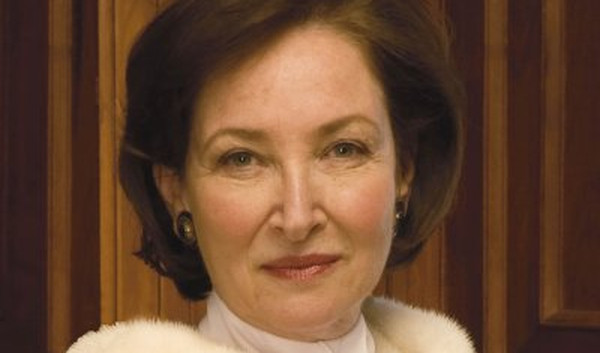Like this article? rabble is reader-supported journalism. Chip in to keep stories like these coming.
Rosalie Silberman never wanted to be a judge.
But the phone kept ringing.
Would she like to be a Family Court judge? She was 29 and pregnant but sure, why not. How about heading up the Royal Commission on Women’s Affirmative Action? Yes, but let’s expand the scope to include Aboriginal people, visible minorities and the disabled and create a definition of equality that will one day be endorsed by the Supreme Court of Canada. Would she like to teach Advanced Jurisprudence at McGill? Sure…um, what’s jurisprudence? Would she sit on the Ontario Court of Appeal? Yeah, why not? How about joining the Supreme Court of Canada? You bet!
It’s been an incredible journey for a little Jewish girl born in a German displaced persons camp to parents who’d been sent to concentration camps and were reunited before finding their way to Canada.
Justice Abella (oh, let’s just call her Rosalie) rolled into Calgary like a rock star on the final leg of a world tour.
She was witty and entertaining, intelligent and thoughtful. She shared stories about her professional and personal life with such bubbly enthusiasm it was difficult to capture them all but here are some highlights:
The Supreme Court of Canada “gig” (her word, not mine)
Rosalie is one of four women on at the Supreme Court of Canada (SCC). She dryly assures anyone who worries that having four women and five men on the bench will damage the Court’s credibility that all of the men got there on merit.
She says the women add a sense of collegiality and teamwork which is vitally important given that every decision a judge writes is critiqued by the other eight judges before it’s ready for publication. She likens it to having eight husbands and trying to agree on where to go for dinner.
Charter challenges
Rosalie expects to see more Charter challenges on issues like freedom of religion, the right to privacy and the need for transparency in our institutions, noting that these cases like the niqab case, will test the boundary between Canadians’ tolerance for differences and their desire to uphold core values.
The politicization of judges
In Rosalie’s view a judge’s political leanings are irrelevant; it’s more important that he or she have an open mind.
This perspective is reflected in her decisions. In the Yukon Francophone School Board case she said a judge’s prior conceptions and opinions must not close his/her mind to the evidence and the issues — “judges should be encouraged to experience, learn and understand “life” — their own and those whose lives reflect different realities.”
We hang out with people like ourselves. We need to look outside to see the “different realities” of others.
Activist judges
Rosalie notes that accusations of judicial activism are creeping back into legal discourse. She says it’s a silly term which simply means someone doesn’t like a judge’s decision. She says it’s only used to denigrate judges who expand rights, but never against judges who curtail them.
This led Ms. Soapbox to reflect on Antonin Scalia, the U.S. Supreme Court judge who was so wedded to the doctrine of originalism — the U.S. Constitution must be interpreted as it was understood at the time of its adoption — that he could hardly abide the decisions which legalized abortion and homosexuality, both of which were criminal acts for over 200 years.
Rosalie says the real test of a court’s judgment is: was it the right decision for its time? This would drive Antonin Scalia bonkers given his devotion to a constitution frozen in time — a time when slavery was legal and women didn’t have the vote.
Access to justice
Rosalie posed a question: if justice is the application of the law to life but some are denied access, then what’s the point?
She had harsh words for the legal profession which, she says, is unwilling to change because the system works for them. She asked where but in the legal profession is the phrase “But we’ve always done it this way” an acceptable rebuttal?
The burden of changing the profession falls squarely on the shoulders of “the grown-ups”, seasoned lawyers, not law schools, law students or new grads.
Advice
Rosalie has two sons. She gave them lots of advice but stayed clear of three topics: one, what profession they should enter; two, who they should marry; and three, when and if they should have children.
Both her sons went to law school. When the youngest complained that law school was boring, she agreed (does anyone really care whether the Egg Marketing Board is a federal or provincial enterprise?) but she wouldn’t let him quit because she believed a legal education would teach him a way to think and solve problems, expose him to great role models and as Rosalie put it, a legal education “sets your brain on fire.”
“Brain on fire”
Justice Rosalie Abella set our brains on fire.
She blew us kisses when she entered the hall. She regaled us with witty and thought provoking stories and personal anecdotes. She graciously accepted her “thank you” present — a Justice Abella 2016 Prairie Tour t-shirt — and modeled it to thunderous applause before leaving the stage.
The audience filed out of the hall knowing that the future is bright for law students who believe in themselves and seek out the job that’s right for them. Those of us with law degrees (“the grown-ups”) decided to shake off the inertia that’s swamped our idealism and see what we could do to revitalize the profession.
I’m betting Rosalie Abella never wanted to be a rock star, but she’s proven herself to be one in every sense of the word.
Like this article? rabble is reader-supported journalism. Chip in to keep stories like these coming.
Image: http://www.scc-csc.ca/



